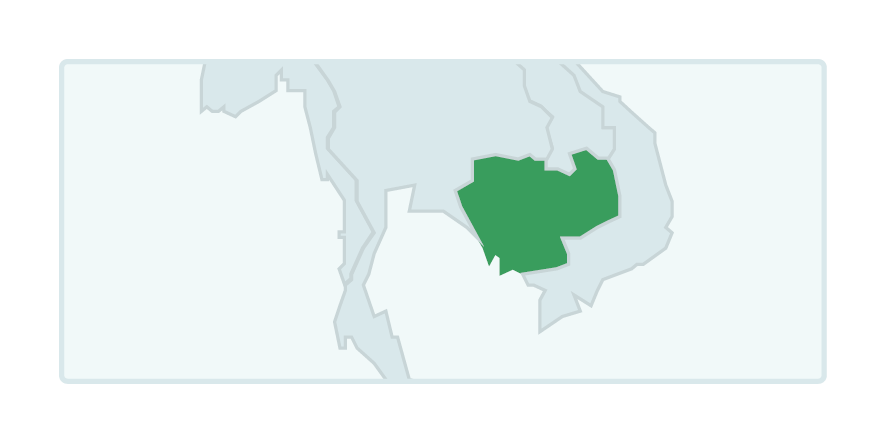In Cambodia, agriculture employs 50 % of the labour force and accounts for 22,2 % of GDP. Yet, the country’s food and nutrition security is far from being achieved: Cambodia depends heavily on imported agricultural products that create competition for local products and malnutrition continues to prevail. 32 % of children under the age of 5 suffer from stunted growth, 10 % suffer from wasting and 24 % are underweight.
In Siem Reap, the country’s main tourism region, farmers struggle to meet increasing demand for safe, healthy food products throughout the year. What’s more, the covid-19 period, with its repeated border closures, has had a particularly disruptive effect on local sectors and markets, and increased food insecurity.
In this context, the general aim of the Apici project is to improve and secure the living conditions of family farmers through agroecological practices in Siem Reap province, Cambodia. Since 2010, it has been working in the following areas:
The project – conducted by GRET and the Cambodian NGO CIRD since 2010, with support from the Hauts-de-Seine French Departmental Council – made it possible to structure a producers’ network and set up a value chain for the marketing of local, quality products.
The challenge now is to ensure producers’ organisations can operate autonomously, in particular by strengthening their capacity to deliver training to farmers on agroecological techniques thanks to a network of pilot farmers. An innovative way to promote agroecology was initiated: the production of video tutorials, made by farmers and distributed on social media (some videos have been watched more than 2 million times).
As consumers are increasingly aware of the importance of safe, good quality food, the project also aims to raise the awareness of stakeholders in the value chain on food security and to combine its agricultural activities with basic knowledge on nutrition.
In addition, the local authorities in Siem Reap have become aware of the importance of developing a provincial food system to feed the population. The action has therefore evolved since the end of 2022 to support provincial stakeholders in co-constructing and implementing a plan to develop an inclusive, sustainable and healthy food system at provincial level.
In 2022: Agroecological products are in vogue in the streets of Siem Reap
In 2021: Facilitating dissemination of agroecology by and for farmers in Cambodia
GRET, a French NGO supporting small-scale Cambodian producers (in French only)
Feedback from Mrs. Peun Sun on the development of her chicken farm (2022)



